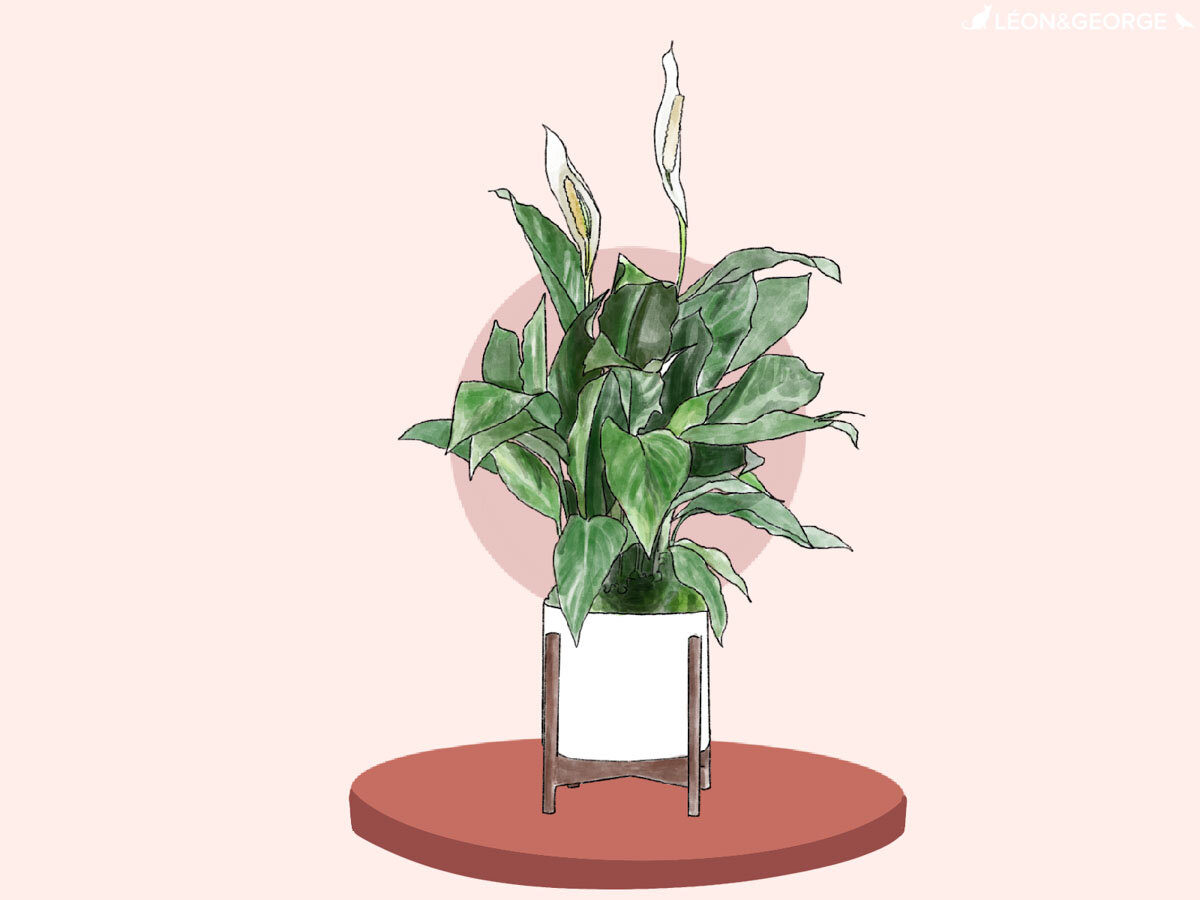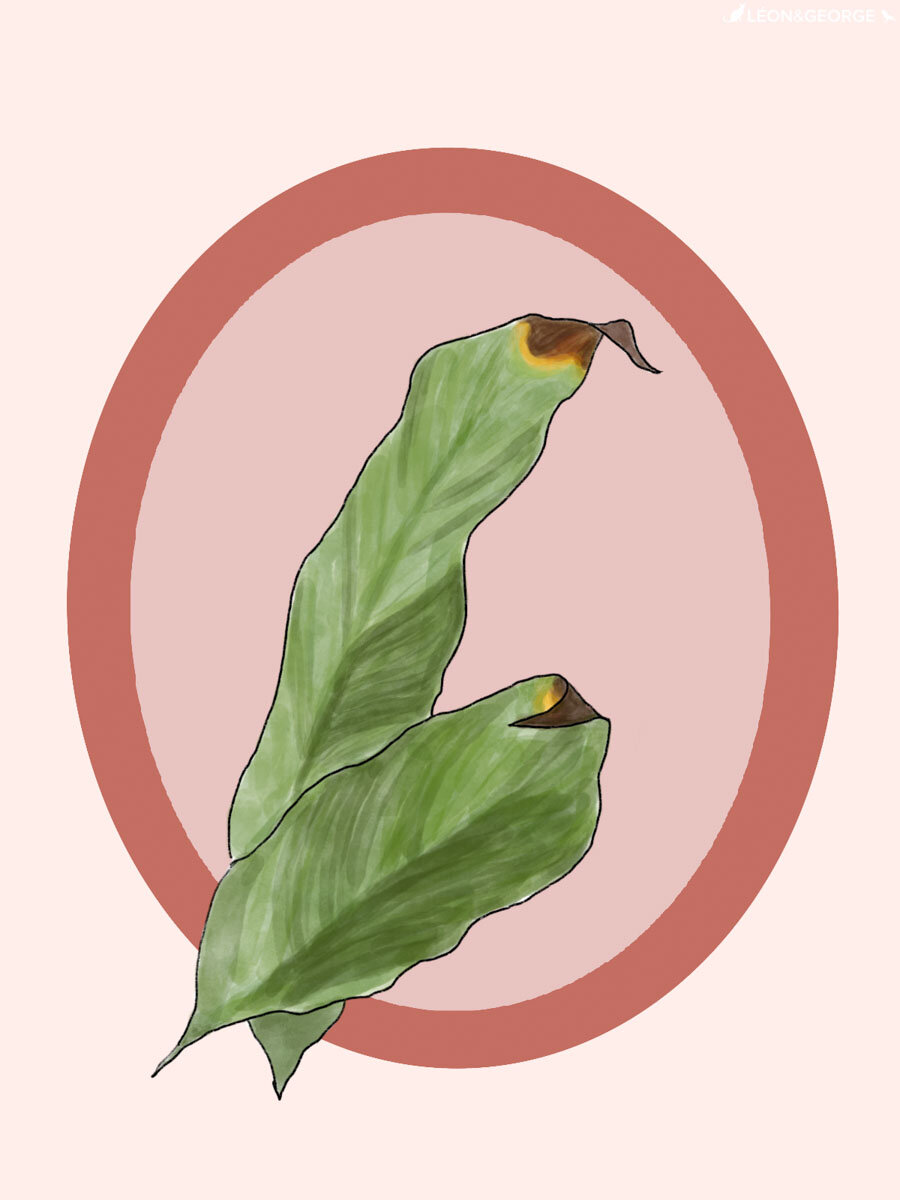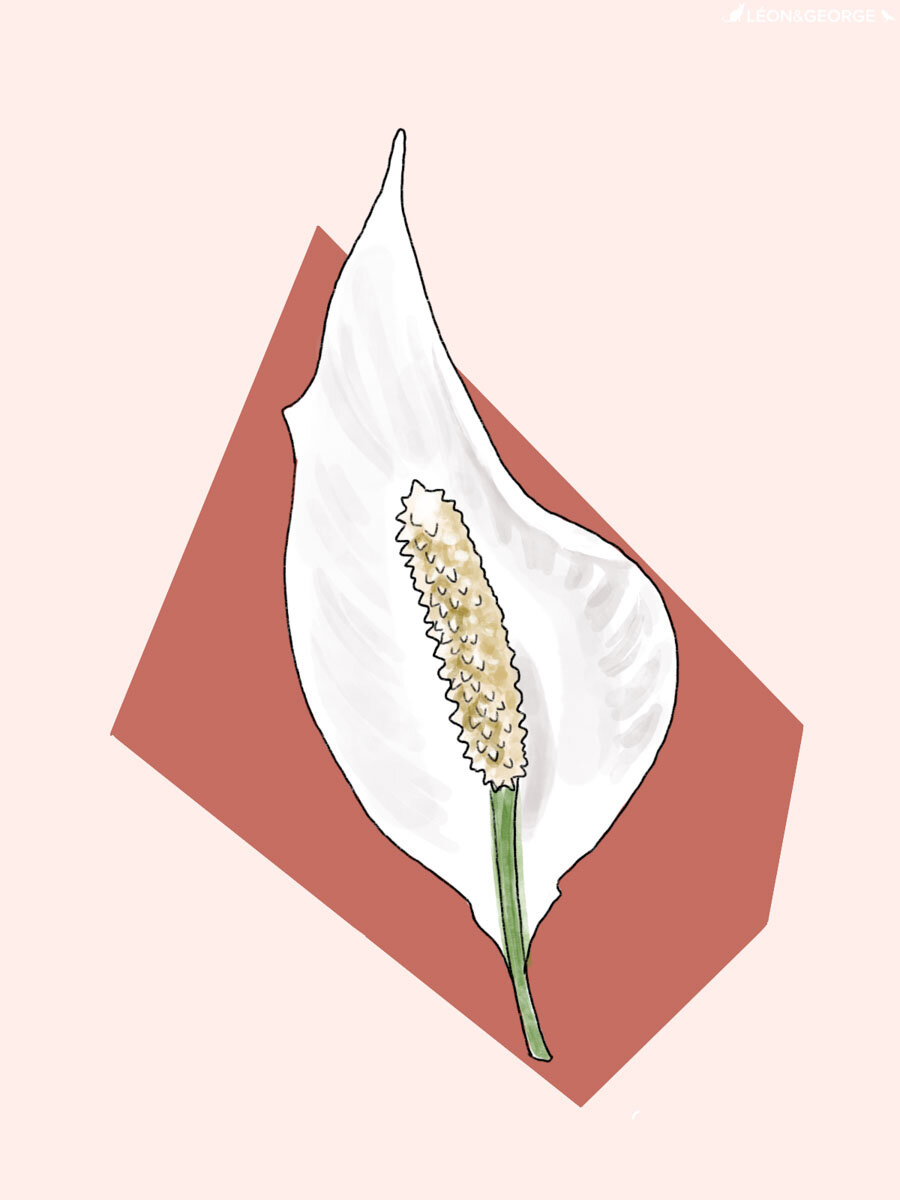How to Care For and Grow Your Peace Lily
Known for its air-purifying qualities and adaptability, the Peace Lily is a popular indoor plant for homes and offices alike. The common name of this plant, which refers to the flower-like spathes that resemble a white flag of surrender, are also what make this indoor plant unique. Here’s everything you need to know to keep Peace Lily plants healthy and growing.
What type of light does the Peace Lily need?
This plant prefers bright indirect light, but can adjust to medium to low light conditions over time. Avoid harsh direct sunlight that may burn your plant’s leaves.
How to water your Peace Lily
Water once or twice a week to keep soil evenly moist but never soggy. Mist regularly to boost humidity.
How fast does the Peace Lily grow?
Peace Lilies are generally slow growers, though can reach up to three feet in height. Fertilize your Peace Lily once a month in the spring and summer with indoor plant food, or foliar feed year round.
Common problems with the Peace Lily
Drooping leaves - underwatering
Symptom - leaves or entire plant heavily droops
Cause - underwatered or prolonged dry period
Remedy - remove the plant from its decorative pot and give a good shower in the sink, allowing it to sit in a dish of water for a few hours before draining and returning to pot
Brown tips - overwatered, air too dry, or too much fertilizer
Symptom - tips turning brown or drying out
Cause - if you water your plant too much, it may become too soggy or waterlogged, causing brown tips. However, Peace Lilies love humid environments and if the air is too dry, this may cause brown tips as well. Finally, it’s possible you’ve given your plant too much fertilizer.
Remedy - if you’ve overwatered, let your plant dry out a bit before watering again. Make sure the plant is not near any air vents or heaters, and mist regularly to boost moisture. if you think you’ve overfertilized your plant, at the next time of watering give it a good shower (like above) to rinse out as much fertilizer from the soil as possible
Not flowering - too little light or too much fertilizer
Symptom - the plant ceases to flower
Cause - Peace Lilies can be a bit of a mystery when it comes to flowering. Sometimes they stop flowering even though they are in prime care conditions. One reason is that the plant is not getting enough light (they need plenty of bright, indirect light to flower), or it’s overfertilized
Remedy - try moving it to a spot with better light conditions. If it’s already in bright indirect light, be patient! Sometimes it takes years for Peace Lilies to flower again.
How to maintain a beautiful and healthy Peace Lily
Take care of your Peace Lily and it will take care of you! Below are simple tips to continue caring for and growing your Peace Lily over time.
Pruning your Peace lily
Remove unattractive or old leaves from the base of the plant with a clean blade. Never remove more than 30% of the plant at a time.
Trimming Peace Lilies
If there is just a small portion of a leaf that was damaged such as the edges, trim off any discoloration or blemishes by following the natural lines and shape of the leaf.
Keeping Your Peace Lily clean
regularly remove dust or pollen to ensure your plant can soak in as much light as possible. Use a damp cloth and gently wipe the leaf clean while supporting the under side with your other hand.
How to grow and repot the Peace Lily
Growing - Peace Lilies can be slow growers. During spring and summer, use a diluted fertilizer once a month to give your plant a vitamin boost.
Repotting - L&G Peace Lilies come in 6” grow pots and only need to be repotted every few years if you notice the roots outgrowing the pot, or to refresh the soil and give it new nutrients. If you’d like your plant to grow larger, find a new grow pot that is 2” larger than its current pot. If you’re happy with the current size, you can reuse the same pot and simply change the soil.
Getting your hands dirty with or without a yard - spread out newspaper on the floor, remove the plant from the pot and shake off as much of the old soil as possible so that you have clean roots. At the bottom of the grow pot, and a layer of soil, then place the plant in the center of the pot and cover with new soil. Pat down firmly and water thoroughly. Place the plant in an area with bright indirect light. Your plant will take 2-4 weeks to settle from the shock and adjust to its new home.
How to propagate the Peace Lily
Propagating a Peace Lily plant is best done through division and during spring or summer.
Divide the roots - remove the plant from its container and determine which area you will divide to create new plants. Make sure there are leaves attached to each clump of roots you divide. Carefully untangle the roots and pull apart with your hands or cut through with a clean sharp knife.
Place in fresh soil - Place the new divisions in fresh soil, press soil firmly and water thoroughly.
Stabilize - Keep freshly repotted plants in a warm area with bright indirect light, and for Magenta Triostars the soil should be kept moist thought not drenched.
Illustrations by our talented plant stylist, Kailie Barnes.
Indoor plants, potted & delivered
Premium plants paired with stylish ceramics, plus lifetime plant care support. Order online at leonandgeorge.com




